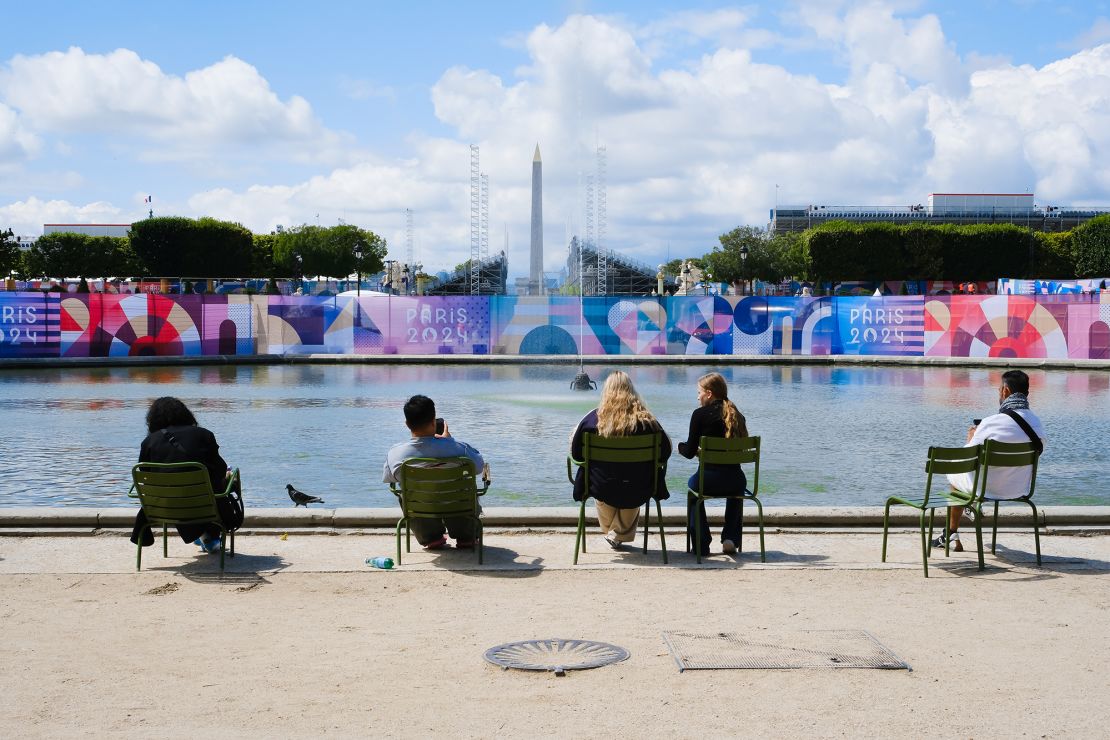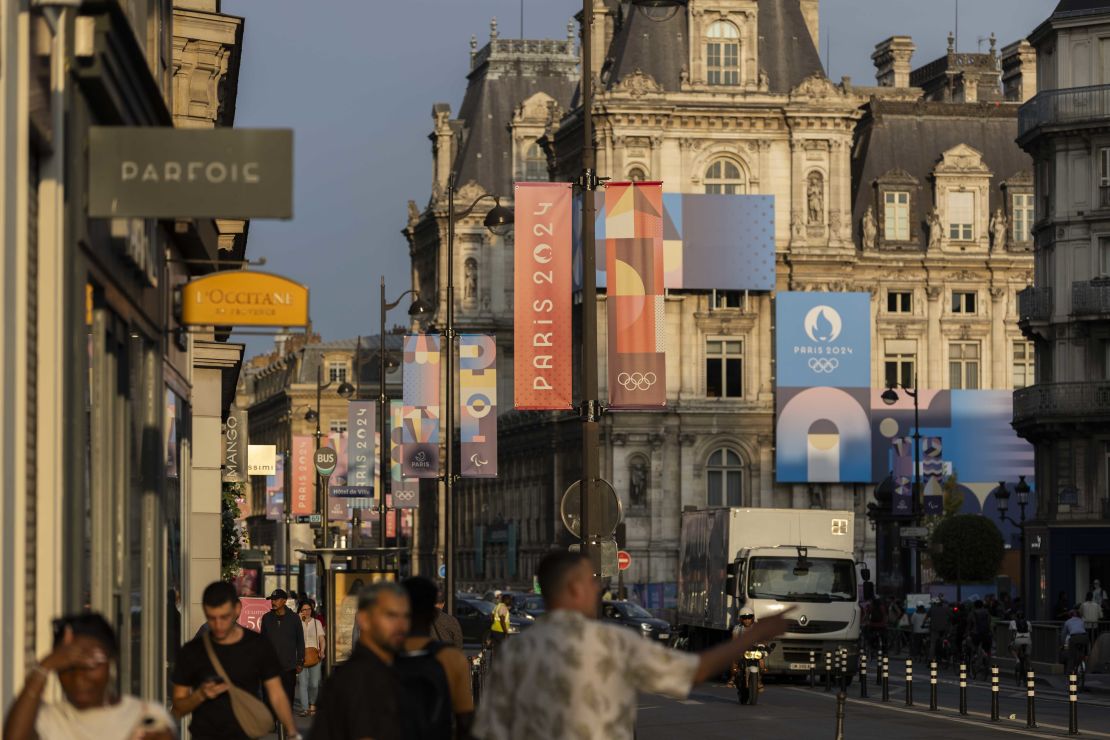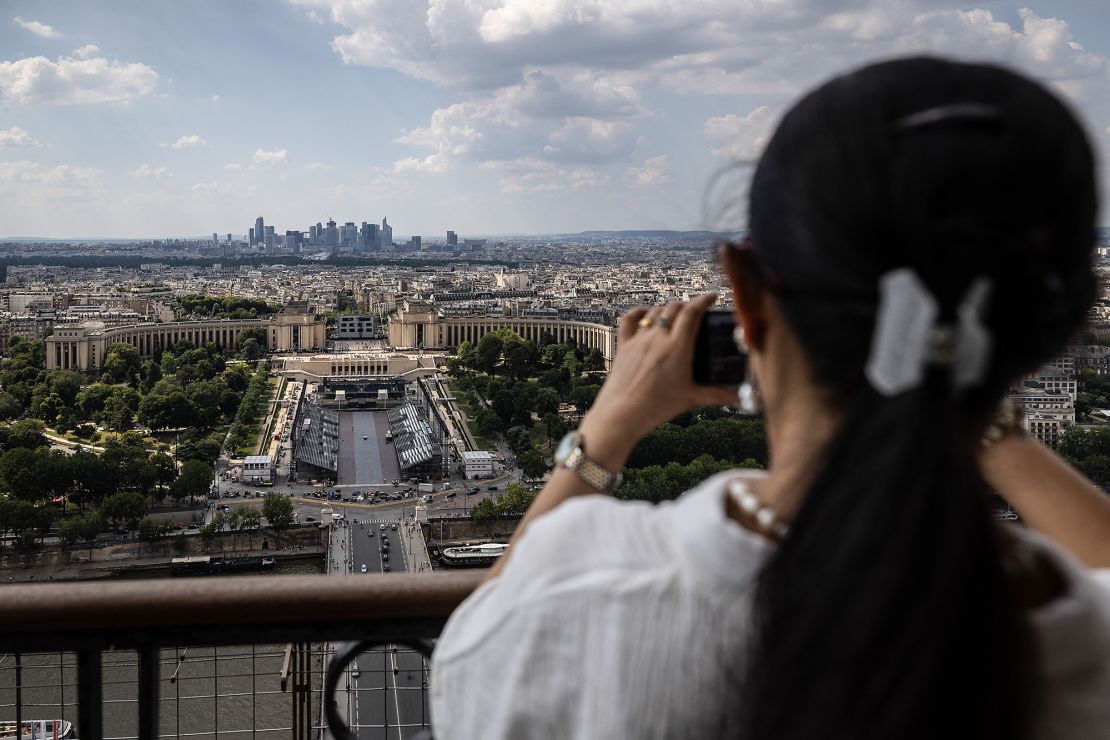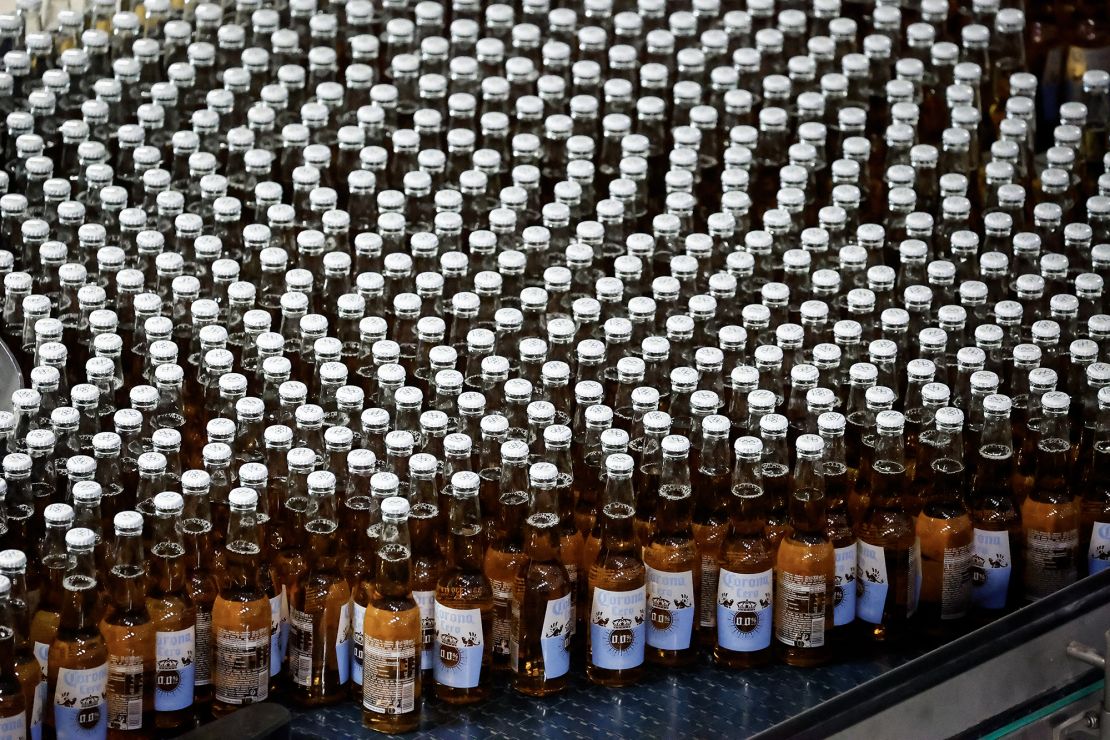The brownish, once-polluted River Seine in Paris isn’t the glitziest or most glamorous, especially in a city filled with iconic landmarks. But for Chase, it’s hoping the waterway will be a showstopper.
At the 2024 Summer Olympics, which officially starts next Friday in the French capital, the bank, along with credit card company Visa, is debuting a floating lounge exclusively for holders of its pricey Chase Sapphire Reserve card. It’s just a small sliver of what companies are doing in their takeover during the two-week sporting spectacular.
Paris 2024 organizers are expected to bring in about $1.3 billion in sponsorship revenue from a mix of domestic partners totaling 60 companies, like Accor and LVMH, and international partners from Coca-Cola to Omega watches. In a first, Anheuser-Bush InBev is the beer sponsor for the Olympic games with a non-alcoholic brew taking the torch.
On the Sapphire’s lounge on the Seine, guests will be treated to fine French food, live entertainment including DJs and bands and a one-of-kind view of Paris meant to strike envy among their Instagram followers. That’s all by design to promote the exclusivity the card offers and perhaps its most lavish attempt at expanding its swanky lounge concept, most commonly seen at airports.
The games are “obviously, a huge cultural moment” with a captivated audience, according to Sam Palmer, general manager of Chase?Sapphire, a popular Visa credit card that attracts high-end spenders with fancy perks, like the lounge, to offset the $550 annual fee.

“It’s is very much aligned with what Sapphire Reserve card members love,” he told CNN. “If you think about the Olympics … it’s about travel, dining, culture, excitement, community.”
All of those things meet every four years at the Olympics, which brings together millions of fans and thousands of athletes. Paris, a city known for its opulence, plays host this year to the first post-Covid games without any crowd restrictions for the first time in six years. (Both the summer games in Tokyo 2021 and 2022 winter games in Beijing either barred or limited spectators or visitors.)
LVMH, the French luxury brand, reportedly spent $160 million to be the games’ first-ever “creative partner” with all of its brands’ reach seen throughout. Louis Vuitton has designed the trays that the medals will be presented on, leather maker Berluti crafted the French athletes’ uniforms at the opening ceremonies and Mo?t & Chandon champagne will be flowing at events and at a pop-up restaurant with celebrated chef Yannick Allen.
Tepid travel
Despite the excitement from companies, it’s the fans that are, so far, more muted. Although the city is expected to draw 11.3 million visitors, only 10% of that are expected to come from outside of France, according to the city’s tourism department.
Even hotels and airlines, which often cash in with a financial boon from major events (see: Taylor Swift), are, so far, underwhelmed by the games with fears of crowds, political turmoil and high prices turning off visitors.
BlackTomato, a luxury travel company, has seen its number of bookings have “eased slightly” for Paris this summer — declining 15% compared to 2023 — showing that excitement to visit the city has dampened during the games.

“We have taken significant bookings to Paris for those who are attending Olympic events, but for those who are not attending the actual games, there has been some hesitancy around traveling at a time when higher rates and minimum stays abound,” Carolyn Addison, head of product for?BlackTomato, told CNN. She points out that travelers are opting for other parts of France, like Provence and Nice, over Paris.
Occupancy rates at Paris hotels are around 80%, according to CoStar, a global provider of travel data, which is well below the nearly 90% London 2012 games had and the whopping 94% occupancy rate for the 2016 edition in Rio de Janeiro.
Accor, which owns several brands spanning from the budget-minded Ibis to the upscale Raffles, is far from sold out across its 200 hotels in the city: The company told CNN that it has an occupancy rate of 75% during the games with those numbers expected to climb to between 80% and 85% once they start.
Another metric showing hesitancy among travelers are flight bookings: The number is expected to increase just 10% for the games, which stretch from July 26 to August 11, according to travel firm ForwardKeys.
That’s down sharply from Rio, which saw a 115% increase in flight bookings. Even the most recent summer games, held in 2021 Tokyo and that barred spectators at the events, registered a 20% increase.
Games held during an off-peak season such as Rio’s games, during winter in the Southern Hemisphere, boosted visitors more than games held when tourism is already at a fever pitch, according to a ForwardKeys spokesperson.
Some of the world’s biggest airlines are warning about a huge financial loss. Delta Air Lines, a sponsor of Team USA, revealed it’s going to lose about $100 million because of travelers skipping Paris. Air France, an “official partner” of the games, said in a recent release that traffic to the city is “lagging behind other major European cities” and it’s taking a roughly $200 million hit for the summer with people opting to visit or connect elsewhere.
A first for the games
Despite the games not being a draw for some, millions of people are still coming and experiencing the delight of Paris for one of the world’s most unique events — and this year, Olympic organizers hope buying tickets is less painful than in the past as they hope to bring in $1.5 billion in sales.


On Location, an event management company, is now tasked with selling tickets and hospitality suites for visitors on a single website, a departure from previous games when a number of authorized resellers in different countries sold tickets and travel packages.
There’s more than 300 events?in 32 sports across several cities in France and even one event, surfing, which is thousands of miles away in the French semi-autonomous territory of Tahiti. That’s confusing and complicated for visitors to plan a trip around, according to Paul Caine, president of On Location.
“With any event, it’s typically very straightforward because they’re generally one-venue events or one-day events, so it’s very clear with a single type of sport. But when you get to the Olympics, it’s a much more complex offering,” he told CNN.
“This is the most ambitious hospitality offering that Paris has organized, meaning that they really wanted to broaden out as a host city so that people had really the full breadth of what Paris has to offer,” Caine said. “It’s really not like what you’ve seen in games before.”

Prices range from about $175 to see golf, which includes lounge access that serves up fresh food and alcohol, to $4,000 package that includes prime viewing of the opening ceremonies on the River Seine.
During the two weeks, On Location is crafting 210 different menus and 3,815 dishes made from 80 chefs that have a collective 23 Michelin stars. The wine selection, which consists of 10 options, are of course all French. And there will be lots of macarons — 200,000 to be exact — and 3.5 tons of fresh cheese plus 4.6 tons of fresh fruit.
Some events have sold out, but there’s still availability for many others, like tennis at Roland Garros and fencing set at the newly remodeled exhibition hall Grand Palais.
Caine said there’s “strong demand” and organizers are seeing a “wide range” of visitors of various ages from around the world buying the luxe packages, including families, solo travelers and businesses looking to entertain their best clients.
“That’s the beauty of the Olympics, there isn’t any one defined customer. There’s a very broad swath of customers,” he said.
‘Huge cultural moment’ for brands
Beyond the athletes, the Olympics are a showcase for brands that have signed multimillion-dollar deals with the International Olympic Committee to become official partners of the games and the billions of eyeballs that watch them.
The brewer Anheuser-Busch InBev is choosing to promote Corona Cero, a non-alcoholic brand that isn’t sold in the United States. (Financial terms weren’t disclosed).

Corona Cero was chosen because “this is the most global brand that we have in the company, and this is a global partnership,” Anheuser-Busch InBev Chief Marketing Officer?Marcel Marcondes previously said. “It only makes sense for us to go with the brand that we have the highest reach globally.”
In the US, viewers will see ads for Michelob Ultra, which is the “exclusive beer sponsor” for Team USA athletes through 2028 and will be the official beer of the LA 2028 Summer Games.
Swanky events like these are how Sapphire “brings more value and elevate the lifestyle and the things that matter to our card members,” Chase’s Palmer said, which didn’t want to reveal the price of all its events. “And of course, it also helps put our name out there and attract new card members, right?”






